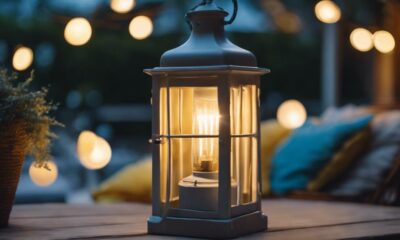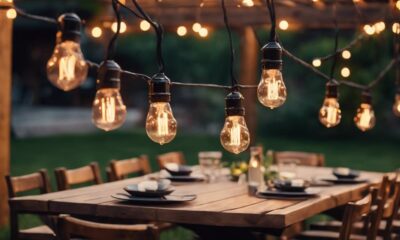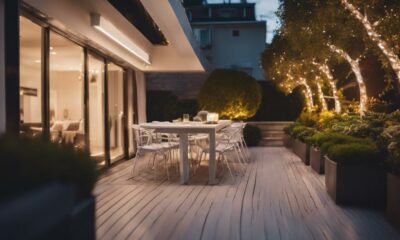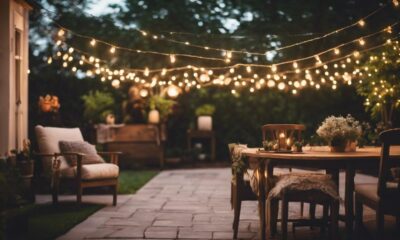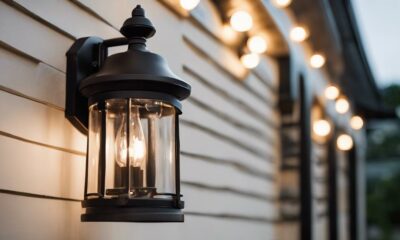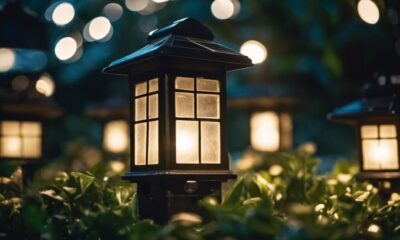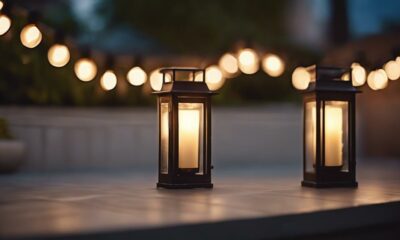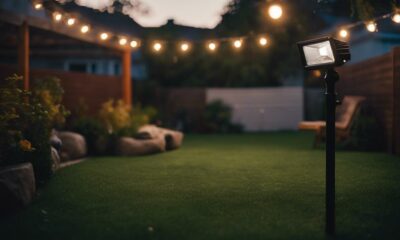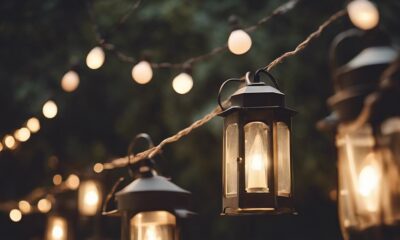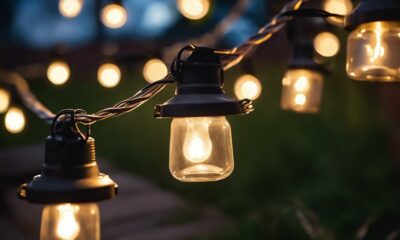Home Decor
Can You Use Home Decor Fabric for Clothing
Get creative with unique textures and designs by using home decor fabric for clothing – discover how to elevate your wardrobe with stylish and innovative options.
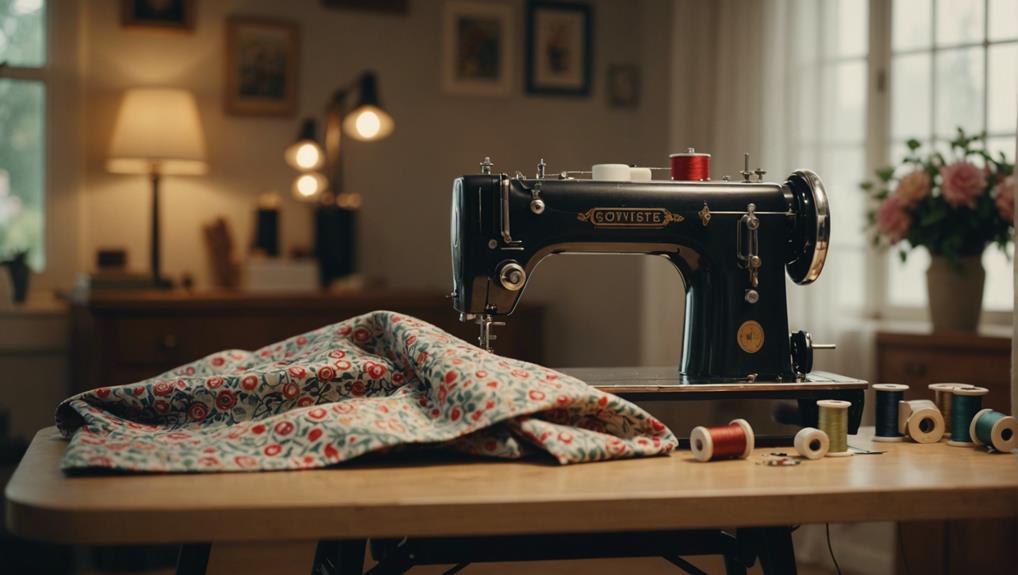
You can absolutely use home decor fabric for clothing, which offers unique textures and designs. It is important to consider factors such as weight, drape, and pre-washing before starting your project. When selecting the right fabric, think about fabric weight, durability, and care instructions. Fabrics like linen, silk, and cotton can be excellent choices. Sewing with thicker materials may require special techniques. Additionally, color coordination and sewing basics are important factors to consider. These tips can assist you in creating fashionable clothing pieces using home decor fabric. Further advice can improve your fabric selection and garment creation.
Key Takeaways
- Consider weight and drape for suitable garment construction.
- Pre-wash to prevent shrinkage and understand fabric behavior.
- Be prepared for special construction techniques and equipment.
- Ensure fabric's breathability and weight align with clothing needs.
- Verify care instructions for washing and maintenance requirements.
Pros and Cons of Using Home Decor Fabric

When contemplating the use of home decor fabric for clothing projects, it's crucial to evaluate the advantages and disadvantages to make informed decisions. Home decor fabrics offer unique textures, prints, and designs that can enhance the aesthetic of your garments.
Linen from home decor fabrics, for instance, can result in comfortable and opaque pants with a luxurious feel. Silks from home decor provide beautiful textures and prints, ideal for creating elegant and sophisticated pieces. Additionally, cotton home decor fabrics are recognized for their durability and bold prints, making a statement in clothing items.
One of the advantages of utilizing home decor fabrics for clothing is that they can be more cost-effective, allowing you to experiment with new patterns and designs without a significant investment. However, it's important to bear in mind that these fabrics may be heavier or less breathable compared to traditional clothing fabrics, which could impact the comfort and wearability of the final garment.
Factors to Consider Before Using
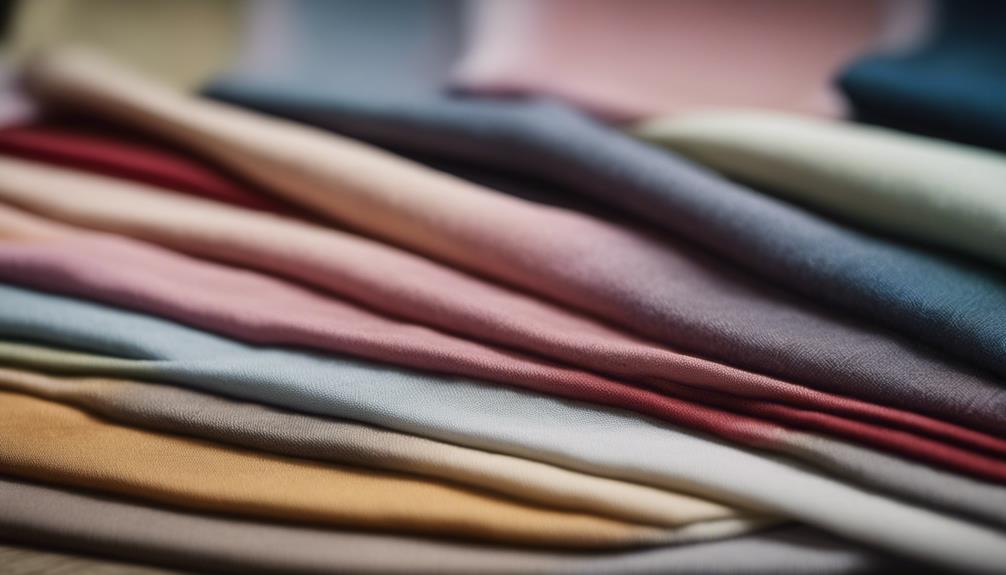
Before incorporating home decor fabric into your clothing projects, it's important to carefully consider several key factors.
- Weight and Drape: Home decor fabrics, like upholstery fabric, are often heavier and more structured than traditional garment fabrics. Consider the weight and drape of the fabric to make sure it suits the desired clothing item.
- Pre-Washing: To prevent shrinkage and assess suitability, pre-wash the home decor fabric before cutting and sewing. This step can also help you understand how the fabric behaves.
- Special Techniques: Some home decor fabrics may require special sewing techniques or equipment for successful garment construction. Be prepared to adapt your sewing methods to accommodate the unique properties of the fabric, especially if it differs significantly from standard garment fabric.
Considering these factors will help you make informed decisions when using home decor fabric for clothing projects.
Tips for Selecting the Right Fabric
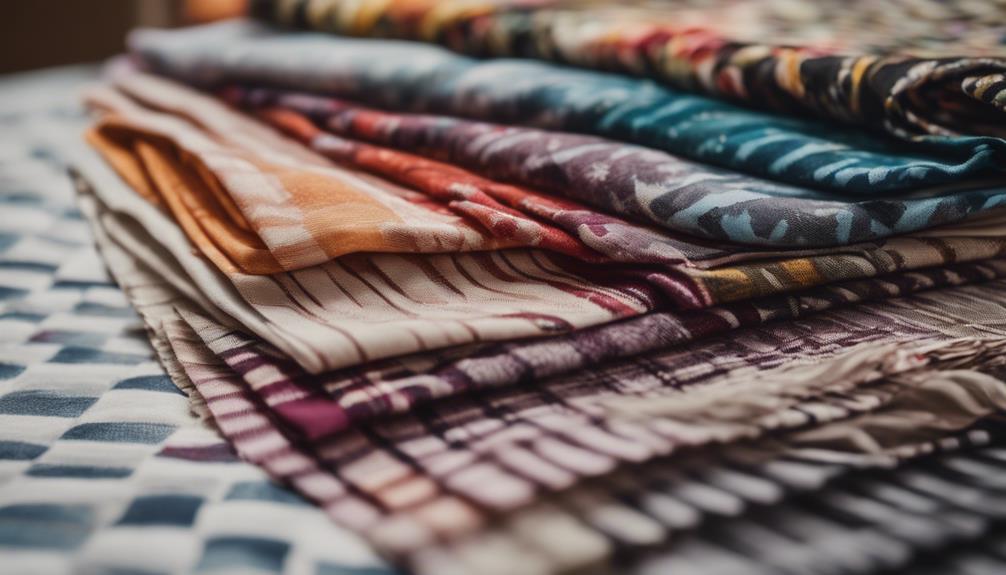
When selecting home decor fabric for clothing, make sure to consider the weight and texture for comfort.
Look for unique patterns and designs that add a bold aesthetic to your garments.
Double-check care instructions to confirm the fabric can withstand washing and maintenance requirements.
Fabric Type Considerations
To choose the right fabric for your clothing project using home decor materials, consider the weight and structure of the fabric to make sure it aligns with your desired garment's characteristics. When selecting fabric from a fabric store, keep the following in mind:
- Weight and Structure: Opt for fabrics that have the appropriate weight and drape for the style of clothing you want to create.
- Durability: Look for durable home decor fabrics that can withstand regular wear and tear to guarantee longevity.
- Textures and Prints: Explore fabrics with unique textures and prints to add visual interest and personality to your garments.
Color and Pattern Selection
Consider the scale of the pattern and your skin tone when selecting home decor fabric for clothing to guarantee a harmonious garment design. Choose colors that complement your skin tone and align with your personal style. Opt for bold or subtle patterns depending on the desired aesthetic of the garment.
Mixing and matching different patterns from home decor fabrics can result in unique and eye-catching clothing pieces. Pay attention to the fabric's texture and how it interacts with the chosen color and pattern for a cohesive look in clothing items.
Best Home Decor Fabrics for Clothing
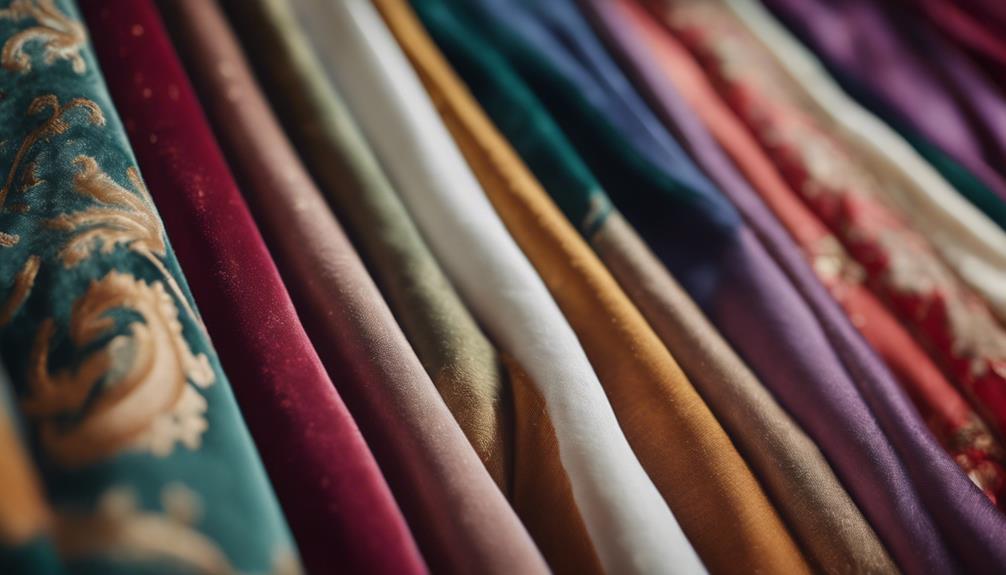
For creating stylish clothing pieces with unique patterns and textures, consider using home decor fabrics like cotton chintz and silk dupioni. These fabrics offer a wide range of benefits when it comes to creating fashionable garments. Here are three top choices for home decor fabrics that work well for clothing:
- Cotton Chintz: Known for its glossy finish and vibrant colors, cotton chintz is a great option for blouses and skirts. Its durability and structure make it ideal for creating statement pieces that will last.
- Silk Dupioni: This luxurious fabric has a crisp texture and subtle sheen, perfect for elegant jackets or evening wear. The rich colors and slight irregularities in the weave add depth to any outfit.
- Velvet: Velvet is a plush and soft fabric that can add a touch of sophistication to your clothing. It drapes beautifully, making it a great choice for creating dresses or tops with a luxurious feel.
How to Work With Thick Fabrics
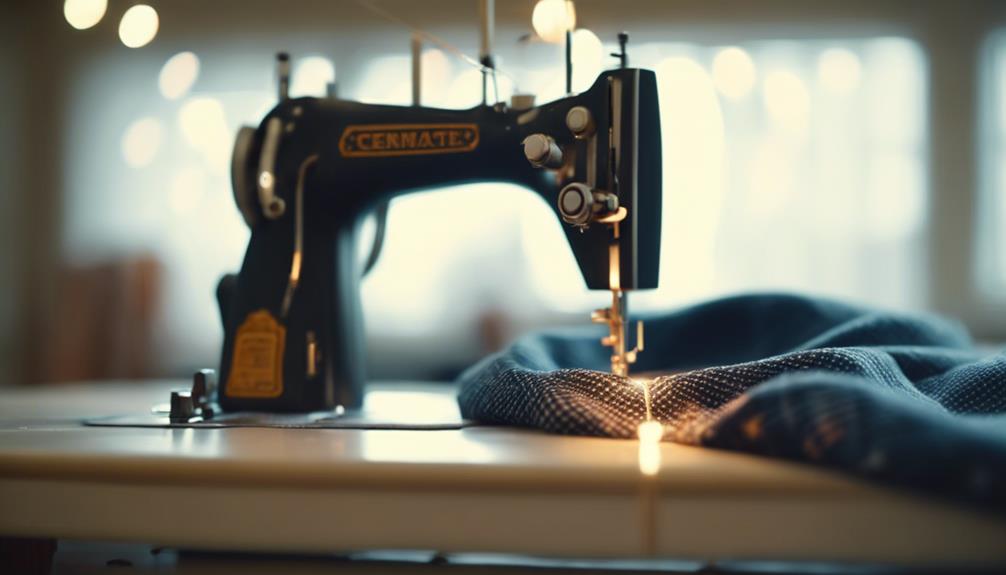
When working with thick fabrics, make sure to use a heavy-duty needle to prevent breakage and guarantee smooth sewing.
Consider attaching a walking foot to your machine for even fabric feeding.
Adjust tension and stitch length accordingly to accommodate the thickness of the fabric.
Sewing Thick Fabrics
Sewing thick fabrics such as home decor fabric requires a heavy-duty sewing machine equipped with a robust motor to handle the material's density effectively. When working with these fabrics, here are some essential tips to help you navigate the process smoothly:
- Use appropriate needles like denim or heavy-duty needles to prevent breakage.
- Adjust the presser foot pressure on your sewing machine to accommodate the fabric's thickness.
- Consider using a walking foot attachment to guarantee even feeding and prevent shifting or puckering during sewing.
Choosing Proper Needles
To effectively work with thick fabrics like home decor materials, make sure you select needles designed specifically for heavy fabrics to maintain smooth sewing. Needles labeled as 'denim' or 'jeans' needles are ideal for tackling thick fabrics found in the home décor department, offering durability and strength. Opting for a larger needle size, such as 16 or 18, can help penetrate densely woven home decor fabrics without causing damage.
Sharp needles are recommended for sewing through thick fabrics to guarantee clean and precise stitches. Proper needle selection is vital for achieving professional-looking results, ensuring smooth stitching and seam quality. Make sure to choose the right needles for the job to make your sewing experience with thick fabrics a breeze.
Adjusting Machine Settings
Adjust the presser foot pressure on your sewing machine to guarantee smooth stitching when working with thick home decor fabrics. When dealing with dense fabrics, such as those used in home decor projects, it's vital to adjust your machine settings accordingly.
Here are some tips to help you work with thick fabrics on your sewing machine:
- Adjust the presser foot pressure: Make sure even pressure is applied to the fabric for smooth stitching.
- Use a heavy-duty needle: Opt for a heavy-duty or denim needle to prevent breakage when sewing through multiple layers of thick fabric.
- Lengthen the stitch: Increase the stitch length to prevent puckering and ensure proper stitch formation on dense home decor fabrics.
Styling Tips for Home Decor Clothing

When incorporating home decor fabric into your clothing, consider how to style it effectively to showcase its unique texture and aesthetic. Fabrics used in home decor are often heavier and can add an interesting dimension to your clothing pieces.
To style home decor clothing, balance the bold prints and designs of the fabric with simpler pieces to let the fabric stand out. Pair a statement home decor fabric skirt with a plain top or vice versa to create a harmonious look. Fabrics like linen and silk, commonly found in home decor, offer luxurious options for comfortable clothing that can be dressed up or down.
When repurposing home decor fabrics for clothing, think outside the box and experiment with unexpected combinations to create a one-of-a-kind fashion statement. By considering the weight, structure, and design of the fabric, you can confidently incorporate home decor fabric into your wardrobe for a unique and stylish look.
Sewing Techniques for Beginners
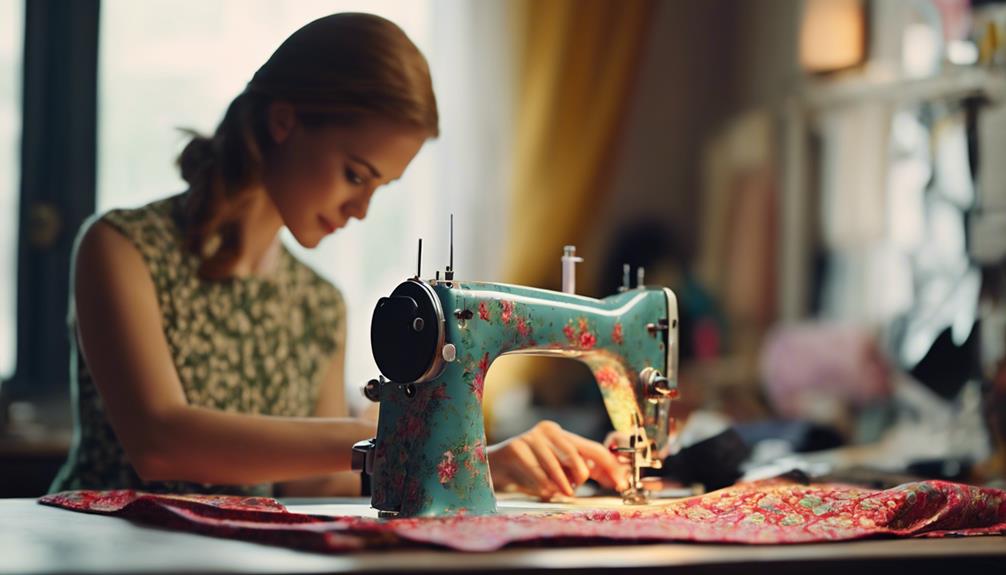
Consider starting your sewing journey with some basic techniques that will help you confidently create garments using home decor fabrics. Here are some essential sewing techniques to get you started:
- Choosing the Right Needle: Make sure you have the correct needle for your fabric type. Home decor fabrics like linen may require a heavier needle, while delicate silks will need a finer needle to prevent snags and runs.
- Seam Finishing: Learn basic seam finishing techniques like zigzag stitching or serging to prevent fraying and give your garments a professional look.
- Pressing and Ironing: Proper pressing and ironing can make a significant difference in the final appearance of your garment. Use a home dec store iron to press seams open and create crisp edges for a polished finish.
Care and Maintenance of Fabric
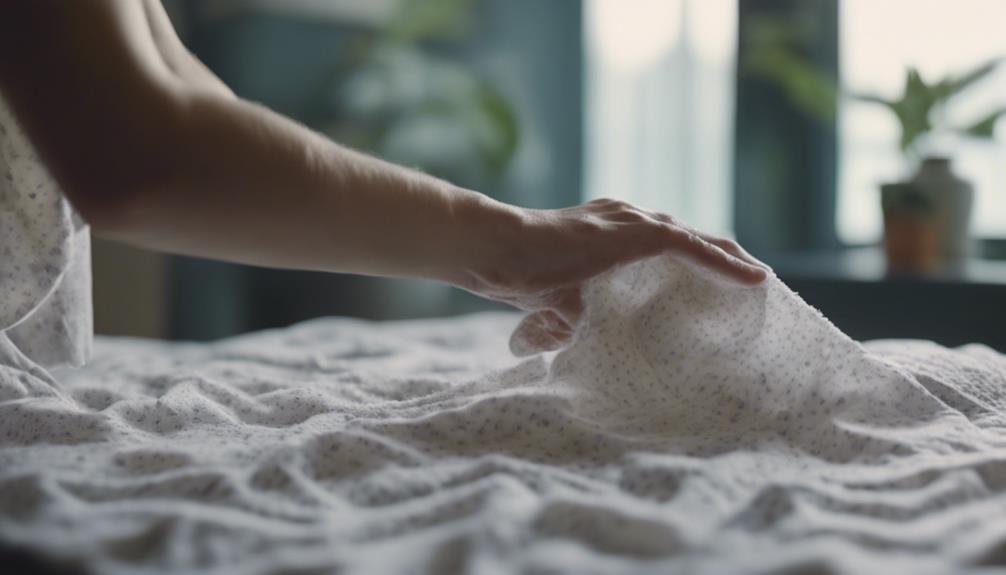
To maintain the quality and appearance of home decor fabrics used in clothing, follow the fabric care instructions provided by the manufacturer. Whether your garment is made of faux suede or features an invisible zipper, proper care is essential. Home decor fabrics may require special attention such as dry cleaning or spot cleaning to guarantee longevity. Some fabrics come pre-treated with stain-resistant finishes, impacting the cleaning methods you can use.
It's vital to adhere to the manufacturer's guidelines to prevent damage during cleaning. Regular maintenance practices like vacuuming or dusting can help extend the lifespan of these fabrics in clothing. Be cautious with cleaning agents, opting for gentle solutions to avoid harming the fibers or finishes. By following these care tips, you can enjoy your home decor fabric clothing pieces for years to come.
Frequently Asked Questions
Can You Use Furniture Fabric for Clothes?
Yes, you can use furniture fabric for clothes. Fabrics like linen or silk from home decor collections offer unique textures and prints for garments. Linen creates comfy pants, while silk provides luxurious textures.
Cotton home decor fabrics are durable and feature bold prints, suitable for statement pieces. Repurposing home decor fabric for clothing can be economical for testing new patterns and designs.
Embrace the versatility of furniture fabric in your wardrobe!
Can You Use Any Fabric to Make Clothes?
Yes, you can use a variety of fabrics to make clothes, each offering unique benefits.
Fabrics like linen provide comfort and opacity for pants, while silks offer luxurious textures.
Cotton fabrics are durable with bold prints for versatile garment projects.
Home decor fabrics can be a cost-effective way to experiment with new designs.
Can You Use Tapestry Fabric for Clothes?
Yes, tapestry fabric can be used for clothing, providing unique textures and patterns for visually striking garments. Its heavy and structured nature makes it ideal for outerwear like coats and jackets. The durability of tapestry fabric guarantees longevity, perfect for creating statement pieces.
Be mindful of pattern placement to showcase design elements effectively. Special handling during cutting, sewing, and finishing is necessary due to its thickness and texture.
What Is the Difference Between Upholstery Fabric and Clothing Fabric?
Upholstery fabric differs from clothing fabric in key ways. Upholstery fabric is heavier and more durable, intended for home decor projects, while clothing fabric is softer and breathable, designed for comfortable wear.
Upholstery fabric may have finishes unsuitable for skin contact, unlike clothing fabric. Clothing fabric is crafted for garments, ensuring flexibility and comfort for the wearer.
These distinctions highlight the unique purposes and qualities of each fabric type.
Conclusion
To sum up, using home decor fabric for clothing can be a creative and cost-effective option, but it comes with its own set of challenges. Consider factors like fabric weight, drape, and care instructions before diving in.
Choose the right fabric for your project and learn how to work with thick fabrics effectively. With the right techniques and styling tips, you can create unique and stylish clothing pieces that stand out.
Remember to care for your fabric properly to make your creations last.
Home Decor
Where Can You Donate Home Decor
Navigate the world of home decor donations in Houston and discover how you can make a difference with your unwanted items.
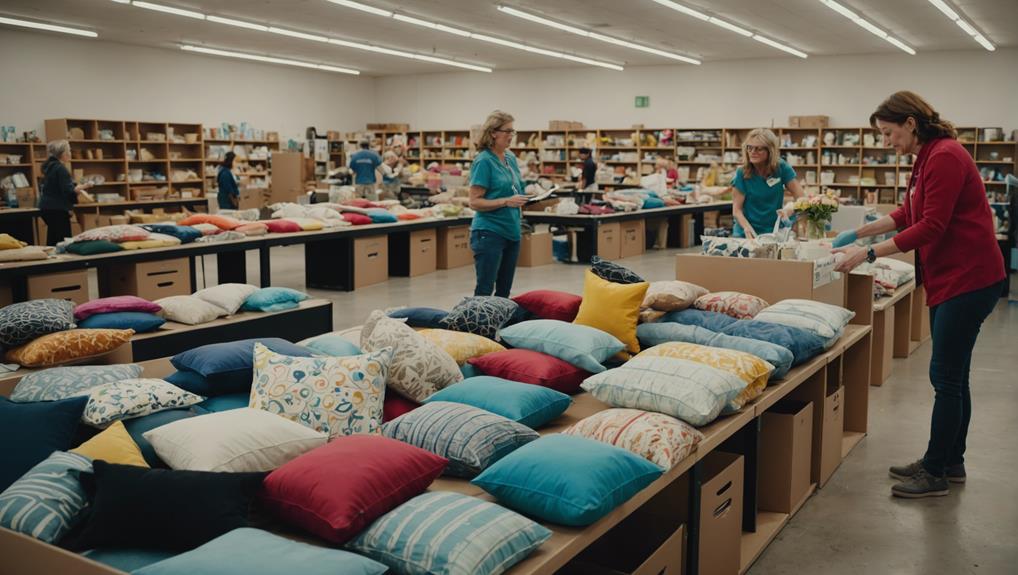
In Houston, you have the opportunity to donate home decor items to help those in need. Consider organizations such as Houston Furniture Bank, Society of St. Vincent De Paul, and local charities. They welcome donations of lamps, rugs, wall art, and decorative accessories in good condition to assist the community. Be sure to review donation guidelines before making a contribution, as some may even provide free pick-up services. Your donations help create inviting spaces for others while also reducing waste. Your generosity can truly impact and improve lives. Take a look at these options to make a positive difference through your home decor donations.
Key Takeaways
- Donate home decor to Houston Furniture Bank or Salvation Army for community support.
- Consider local charity options for accepting decorative items in good condition.
- Nonprofit thrift stores in Houston welcome home decor donations to fund charitable causes.
- Schedule pick-ups with nearby charities for convenient donation of lamps, rugs, and artwork.
- Online platforms like Houston Habitat for Humanity accept decorative accessories to benefit the community.
Houston Furniture Bank Donation Guidelines
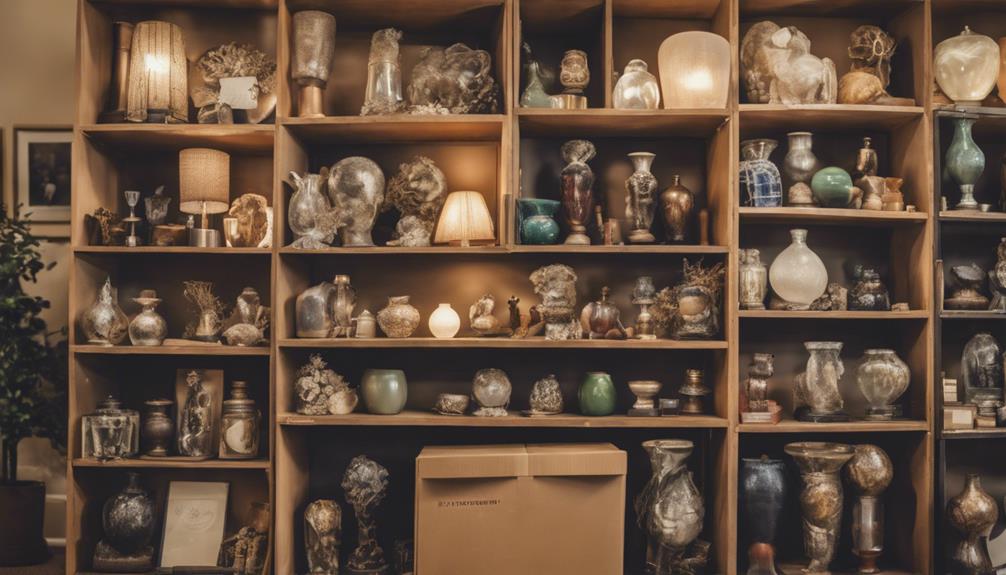
If you have home decor items to donate, Houston Furniture Bank has specific guidelines for what they accept. The donation guidelines emphasize that home decor items such as lamps, rugs, and decorative accessories should be in good condition to be considered for donation. It's vital to make sure that your donations are clean, functional, and free of significant damage before scheduling a pickup with Houston Furniture Bank. By adhering to these guidelines, you're contributing to community outreach programs that furnish homes for families in need.
Donated home decor items play an important role in supporting affordable housing initiatives and reducing waste in landfills. Houston Furniture Bank requests a $65 donation per visit for furniture and home decor pickups to cover operational costs. Your contributions not only help those in need but also have a positive impact on the environment and the community as a whole. Make a difference today by donating your clean and functional home decor items to Houston Furniture Bank.
Society of St. Vincent De Paul Donation Process

To continue supporting those in need through donations, consider the Society of St. Vincent De Paul Donation Process for your gently used home decor items. The Society of St. Vincent de Paul accepts items like decorative pieces, artwork, and small furniture in good condition for donation.
Your contributions help support the Archdiocese of Galveston-Houston and individuals and families in need. Before donating, make sure your home decor items meet safety standards to guarantee they can be of use to others.
Houston Local Charity Home Decor Donations
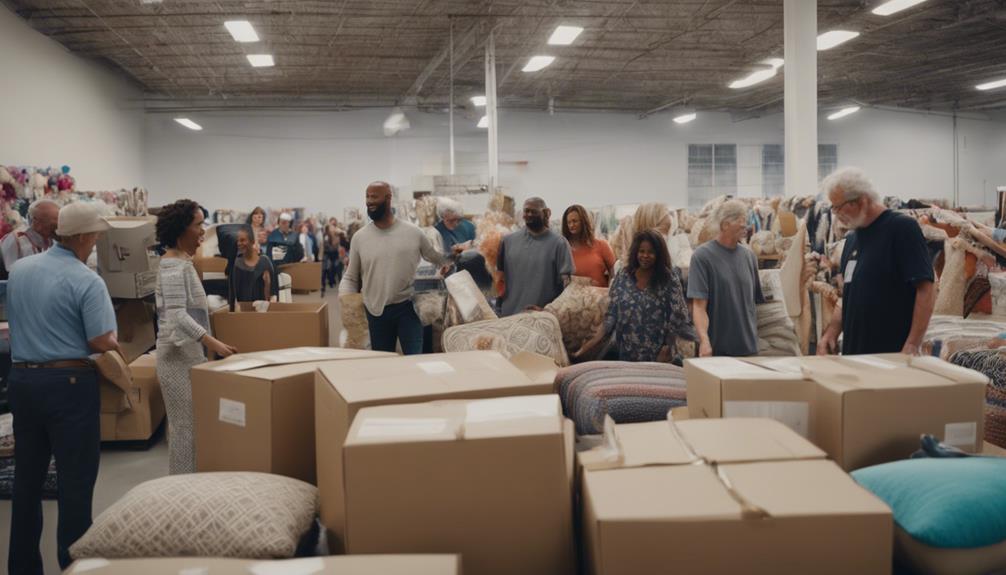
When considering donating home decor items in Houston, you can explore local charity options that accept lamps, rugs, wall art, and decorative accessories. Look for convenient donation drop-off locations and verify the list of accepted home decor items to confirm your donation aligns with the charity's needs.
Your contributions help create welcoming and comfortable living spaces for individuals and families in need in the Greater Houston area.
Local Charity Options
Consider supporting individuals and families in need in the Greater Houston area by donating your home decor items to the local charity. Houston Local Charity welcomes home decor donations to assist those in need. Free donation pick-up dates vary by region, ensuring convenience for donors.
Your donated items help create inviting spaces and support community initiatives. The charity carefully screens donations to guarantee they're in good condition for recipients. By contributing home decor items, you directly impact and enhance the lives of individuals and families in your local community.
Your support through donations plays an essential role in providing comfort and assistance to those who need it most in the Greater Houston area.
Donation Drop-Off Locations
You can conveniently drop off your home decor donations at various designated locations throughout the Greater Houston area to support Houston Local Charity. These donation drop-off locations are set up to receive items like lamps, rugs, wall art, and decorative accessories. By contributing your gently used home decor items, you aren't only decluttering your space but also helping those in need within the community.
The specific locations where you can drop off these donations may vary depending on the charity or organization you choose to support. Your generosity in donating home decor can make a meaningful impact and foster a sense of unity and support for those who benefit from these contributions.
Accepted Home Decor Items
To support Houston Local Charity and contribute to individuals and families in need, consider donating home decor items like lamps, rugs, wall art, vases, and decorative accessories.
Houston Local Charities accept used furniture and other good home decor items to benefit those in the Greater Houston area. The donated items should be in good condition, clean, and free of damage to guarantee they can be of help to those receiving them.
By donating these home decor items, you can help create a more welcoming and comfortable living environment for individuals and families facing challenges.
Houston Local Charities offer free pick-up services for donated items, making the donation process convenient for donors like you.
Where to Donate Lamps in Houston
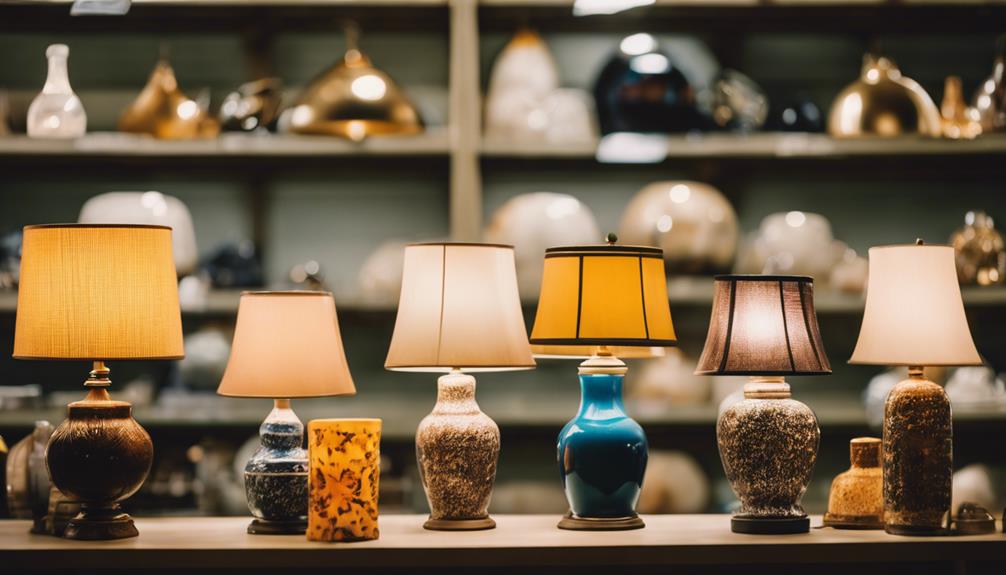
In Houston, lamps in good condition can be donated to organizations like Houston Furniture Bank to support families in need. When donating lamps, make sure they're clean, functional, and free of defects to provide essential lighting to those in the community. Houston Furniture Bank accepts these donations to reduce waste and help families in need access necessary items.
Keep in mind that there's a $50 fee for furniture pickups, which may include lamps. By donating your lamps, you contribute to a sustainable solution that benefits both the environment and individuals experiencing hardships. Your contribution can make a meaningful impact by brightening someone's home and improving their quality of life. Consider reaching out to Houston Furniture Bank to schedule a pickup or drop-off for your lamp donations and be part of the positive change in your community.
Donating Wall Art in Houston

When considering where to donate wall art in Houston, explore various organizations that support charitable missions through art contributions. Organizations like ReStores, local charities, and thrift shops welcome your wall art donations to benefit the community.
Your donations can help reduce waste in landfills and provide decor for those in need. By donating wall art, you can make a positive impact by supporting causes such as building affordable housing, aiding veterans, or assisting families in crisis.
These organizations in Houston rely on the generosity of donors like you to further their missions and help those in the community. Whether you have paintings, prints, or other wall decor to donate, these organizations will put your contributions to good use.
Consider reaching out to these organizations to see how your wall art donations can support charitable initiatives in Houston.
Ways to Donate Vases in Houston
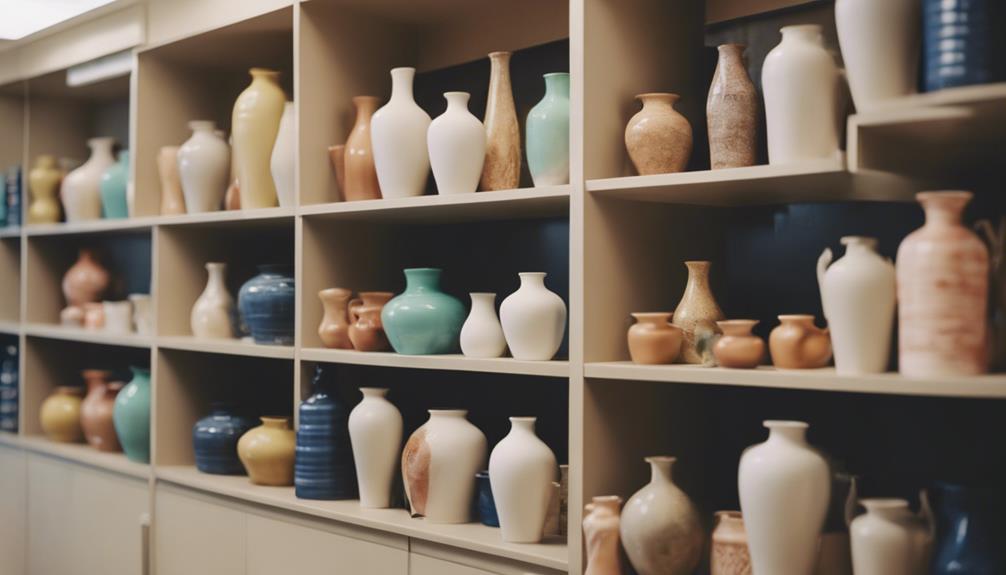
Consider exploring local donation centers and organizations in Houston that accept vases as part of their home decor donations to support charitable causes in the community. Donating vases to places like the Houston Furniture Bank is a sustainable way to declutter your home while giving back to those in need.
By donating vases, you not only reduce waste but also help local charities in the Houston area. These organizations often welcome vases along with other home decor items, making it convenient for you to contribute to a good cause.
Whether you prefer scheduling pick-ups or dropping off the vases yourself, there are various options available to make the donation process easy and accessible. Joining this initiative not only helps you tidy up your space but also allows you to make a positive impact on the community by supporting charitable efforts through your home decor donations.
Houston Charities Accepting Decorative Accessories
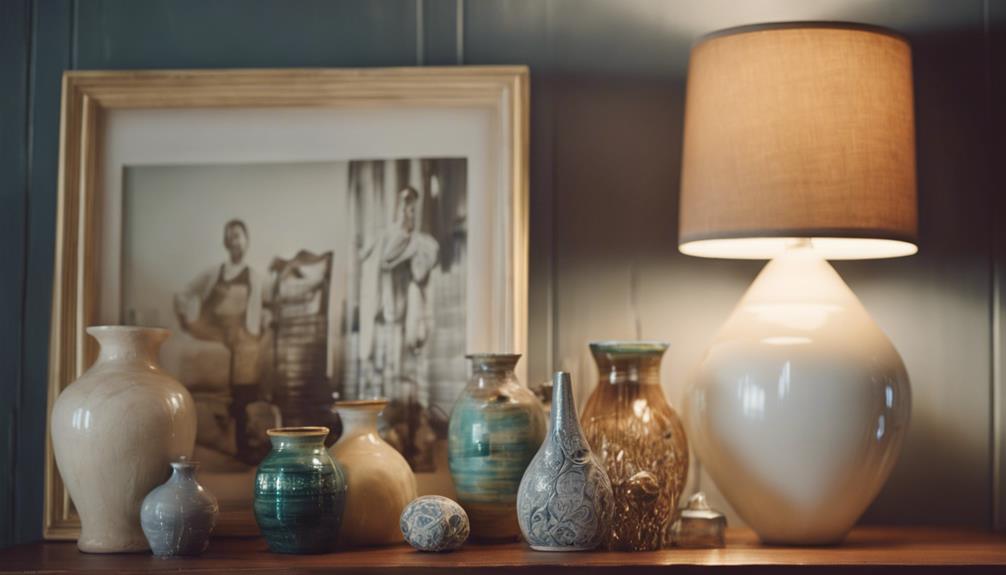
If you have decorative accessories to donate in Houston, consider local donation centers like the Houston Furniture Bank or the Salvation Army.
Nonprofit thrift stores such as the Giving Gown Foundation and the Society of St. Vincent de Paul also welcome like-new home decor items.
Additionally, you can explore online charity platforms that support causes like helping veterans and their families through organizations like the Purple Heart Foundation.
Local Donation Centers
Local donation centers in Houston gladly accept decorative accessories like vases, artwork, candles, and decorative accents to support those in need. When looking to donate home decor items, consider these options:
- Houston Furniture Bank: This charity welcomes donations of home decor to assist families in need.
- Salvation Army: Another organization in Houston that appreciates home decor donations to support their community outreach programs.
- Community Outreach Programs: Donating home decor items not only helps reduce waste but also supports various community outreach initiatives.
Nonprofit Thrift Stores
When donating decorative accessories in Houston, opt for nonprofit thrift stores to support charitable causes and community programs. These nonprofit thrift stores accept home decor items to help fund various charitable causes and support sustainable practices.
Your donations of decorative accessories can make a positive impact by providing assistance to those in need while also reducing waste. By choosing to donate to these thrift stores, you're contributing to the betterment of the community through your support.
Consider these nonprofit thrift stores as a convenient way to give back and make a difference with your home decor donations. Your contributions can truly help in funding essential community programs and services.
Online Charity Platforms
Consider exploring online charity platforms in Houston that accept decorative accessories as donations to support various charitable causes and community initiatives. When looking to donate home decor items in Houston, you can turn to specific charity platforms like:
- Houston Furniture Bank: Accepts items such as lamps, rugs, and home accessories in good condition.
- Houston Habitat for Humanity: Donations of decorative accessories help in building affordable housing.
- The Cottage Shop: Check with this charity for guidelines on donating home decor items.
Schedule a Pick-up for Home Decor Donations
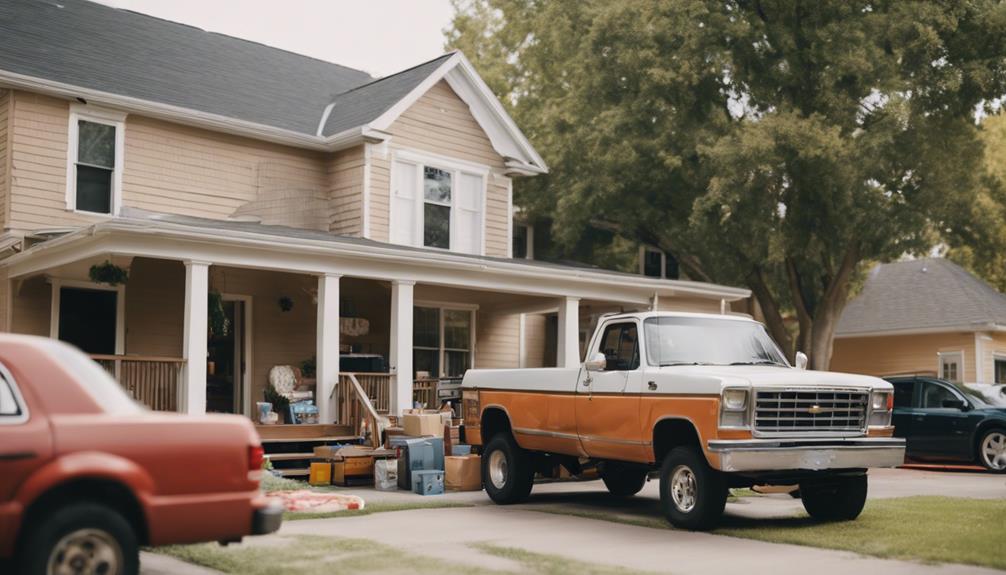
To arrange a pick-up for your home decor donations, contact nearby charities or organizations that offer this service. Before scheduling a pick-up, make sure that your home decor items are in good condition, clean, and free of damage.
Commonly accepted items for donation include lamps, rugs, vases, artwork, and decorative accessories. It's crucial to check the donation guidelines of the charity or organization you plan to donate to, as they may have specific requirements and restrictions when it comes to home decor donations.
Supporting the Community Through Home Decor Donations
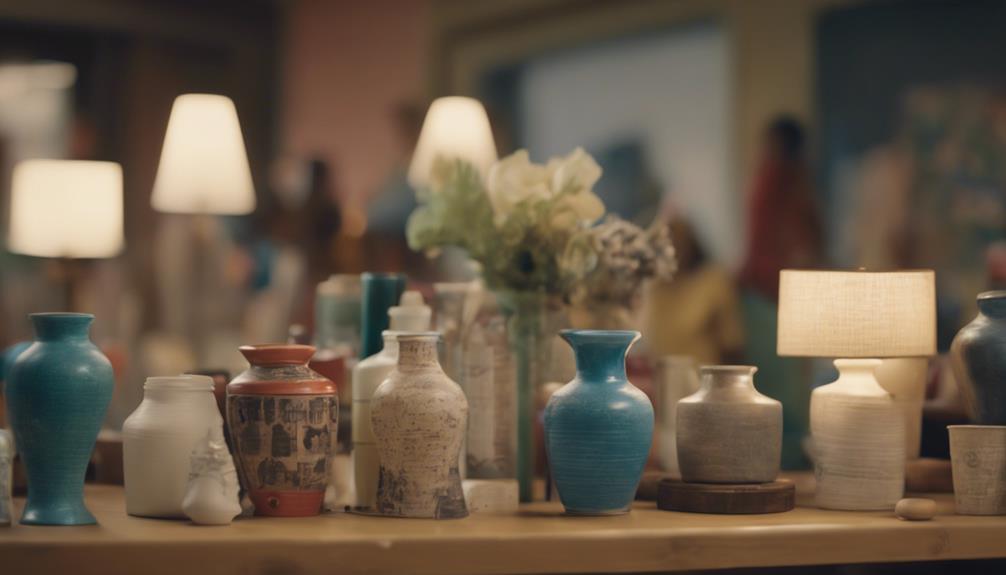
Supporting your community through home decor donations can make a significant difference in the lives of those in need. By choosing to donate home decor, you actively contribute to local charities and community programs that require household goods to assist families in furnishing their homes affordably.
When you donate gently-used items like lamps, rugs, wall art, and decorative accessories, you not only enhance living spaces but also prevent these items from ending up in landfills, thereby promoting sustainable practices.
Additionally, supporting charities through home decor donations fosters a sense of community engagement and social responsibility, creating a positive impact on the well-being of those around you.
Get involved today by considering donating your gently-used home decor items to organizations like Houston Furniture Bank, and help build a stronger, more supportive community for all.
Frequently Asked Questions
What Is the Best Charity to Donate Used Items To?
When deciding on the best charity to donate used items to, consider reputable organizations like Houston Furniture Bank, Salvation Army, and Society of St. Vincent de Paul. These charities accept gently used home decor items to support those in need.
Donating helps reduce waste and provides essential items to those facing financial challenges. Make sure your items are in good condition, clean, and follow donation guidelines. Contact the charities directly to schedule drop-offs or pick-ups for donations.
Who Is Best to Donate Furniture To?
When deciding where to donate furniture, Houston Furniture Bank is a top choice. By supporting this organization, you can help provide essential items to families in need while promoting sustainability.
They accept items like sofas, chairs, and tables in good condition. A $65 donation per visit for furniture pickup covers costs.
In 2022, Houston Furniture Bank gave away over 19,000 pieces of furniture, making a significant impact in the community.
Is Donatestuff.Com Legit?
Yes, Donatestuff.com is a legitimate platform for donating various items to charities in Houston. It allows you to schedule pickups for Purple Heart Houston to support those in need.
With categories like clothing, small appliances, furniture, and accessories, you can make a positive impact in the community. By redirecting usable items to those who can benefit from them, the platform helps reduce waste and provides a convenient way to support local charities.
Can You Donate Cushions to Charity?
Yes, you can donate cushions to charity to support those in need. Cushions in good condition can be given to organizations that accept home decor items. Donating cushions can provide comfort to individuals or families in need.
Check with local charities or donation centers to see if they accept cushion donations. Make sure the cushions are clean, undamaged, and usable before donating to guarantee they can benefit those receiving them.
Conclusion
To wrap up, donating home decor in Houston is a simple way to support local charities and give back to the community. Whether you have lamps, wall art, vases, or decorative accessories to donate, there are various organizations that will gladly accept your items.
By scheduling a pick-up or dropping off your donations, you can make a meaningful impact and help those in need while decluttering your home. So, consider donating your home decor today and make a difference in someone's life.
Home Decor
What Home Decor Says About You
Journey through your home decor to unravel the hidden depths of your personality and style.
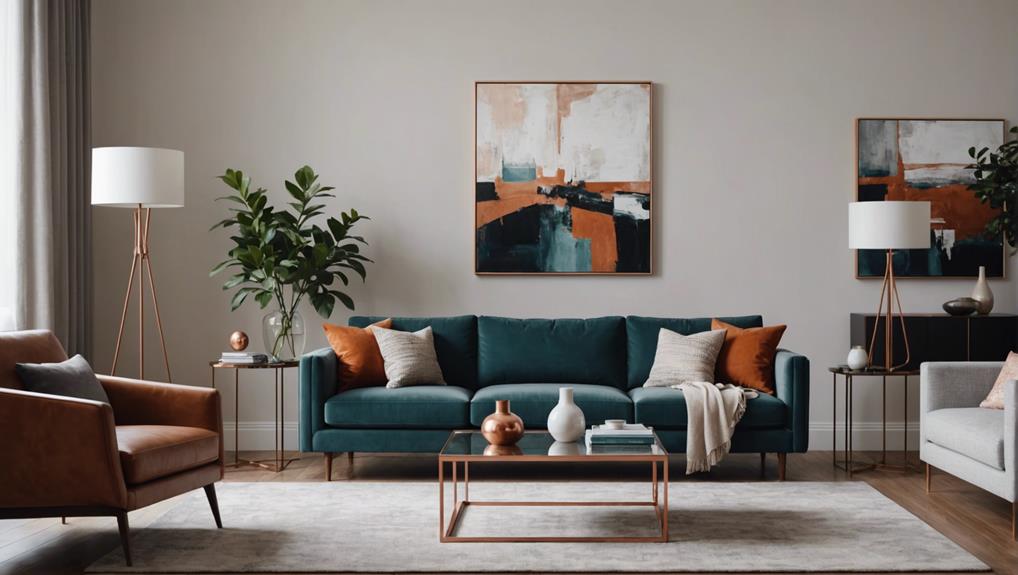
Your home decor says a lot about who you are. Tidy bookshelves indicate your organization skills, while bright colors show your outgoing personality. Carefully arranged decorations suggest a keen eye for detail, and cozy corners reveal your creative side. Whether you prefer bold or neutral hues, your choice in colors reflects your personal style. The furniture you choose, whether vintage or modern, adds another layer to your individuality. Every item in your home, from family photos to artwork, provides insight into your interests and values. Your decor is like a mirror, reflecting your unique qualities, showcasing your style, beliefs, and creativity. Explore more about yourself through the design choices you make for your home.
Key Takeaways
- Neat and organized decor suggests a structured personality with attention to detail.
- Eclectic and cozy spaces indicate a carefree and creative spirit.
- Bold colors and statement pieces reflect an outgoing and adventurous nature.
- Minimalist and neutral tones signify introspection and reserved traits.
- Furniture styles and decor choices mirror individuality, creativity, and values.
Connection Between Home Decor and Personality
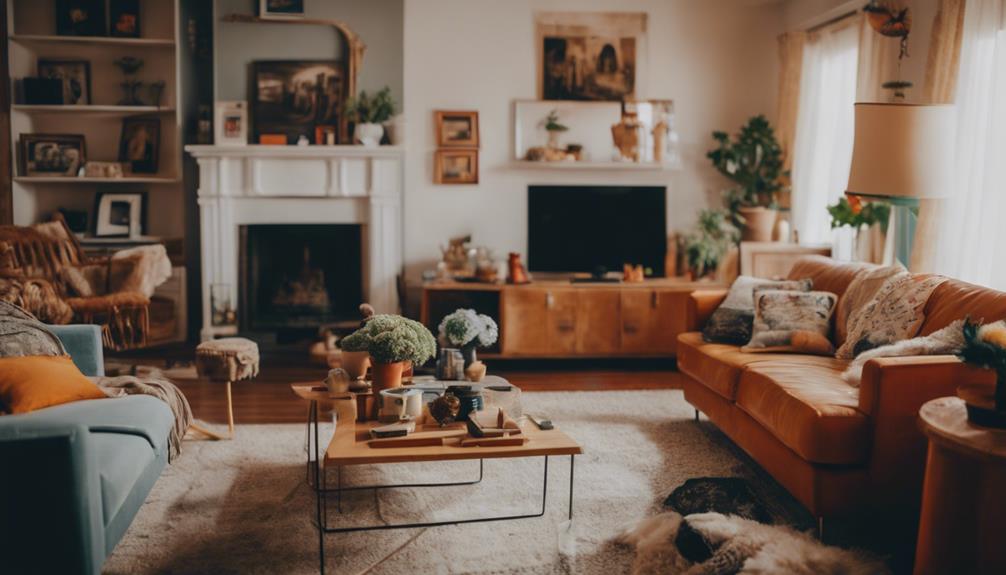
Your home decor choices provide a window into your personality traits, reflecting aspects like openness and emotional stability. The way you organize your spaces, from neatly arranged bookshelves to cluttered countertops, can offer insights into your level of organization. For example, a meticulously curated gallery wall may indicate attention to detail and a preference for order, while a cozy nook filled with eclectic knick-knacks could suggest a more carefree and creative spirit.
Studies suggest that your design choices extend beyond mere aesthetics, revealing individual characteristics and preferences. Your home environment can indicate whether you lean towards extroversion or introversion based on your decor. For instance, bold, vibrant colors and statement pieces may signify an outgoing and adventurous personality, while neutral tones and minimalist designs could reflect a more reserved and introspective nature.
Impact of Home Decor on Individuality
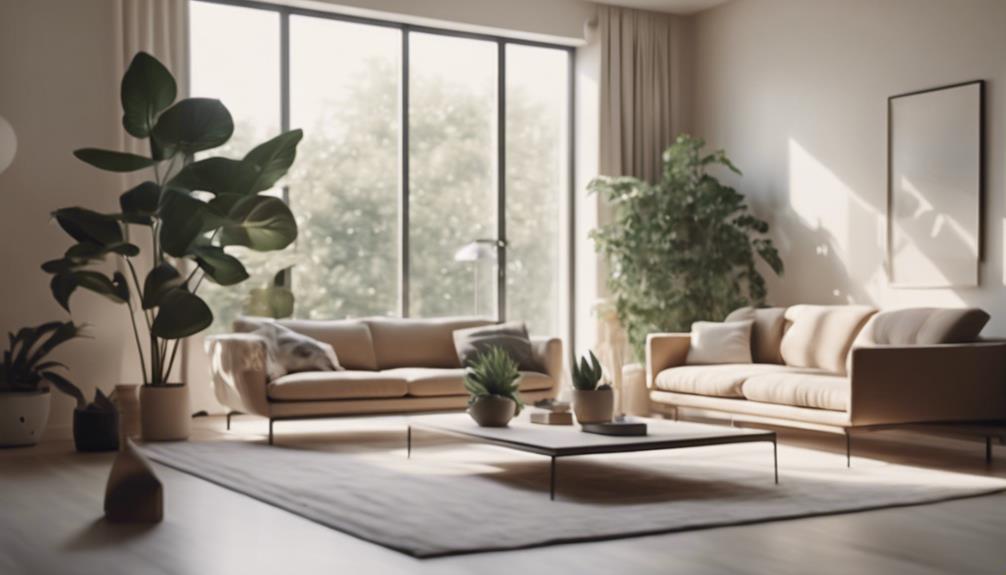
Your home decor plays a significant role in expressing your unique personal style, reflecting values, beliefs, and individuality.
The choices you make in colors, patterns, and decor items can communicate different aspects of your character and personality to those who enter your space.
Personal Style Expression
When considering the impact of home decor on individuality, one's personal style becomes a prominent avenue for self-expression. Your interior design choices, color palettes, and furniture selections all play a role in showcasing your unique personality.
Through your decor, you have the opportunity to express your style preferences, whether they lean towards minimalistic, eclectic, or traditional designs. Your decor choices reflect your tastes and values, creating a space that truly feels like home.
Personalized decor not only adds character to your living environment but also allows you to exhibit your creativity and passions. By curating spaces that speak to your interests, you can tell your story through the art of interior design.
Reflecting Values and Beliefs
Reflecting values and beliefs through your home decor choices allows you to convey a visual representation of your personality and individuality. Your lifestyle choices, emotional connections, and interests are subtly communicated through the style, colors, and arrangement of your decor.
Personalizing your space with items that hold meaning to you not only creates a sense of comfort but also authenticity in your living environment. By curating your home with decor that resonates with you, you're expressing your values and beliefs to those who enter your space.
The way you choose to decorate your home can provide insights into your character, preferences, and the things that matter most to you.
Personality Reflection in Home Decor
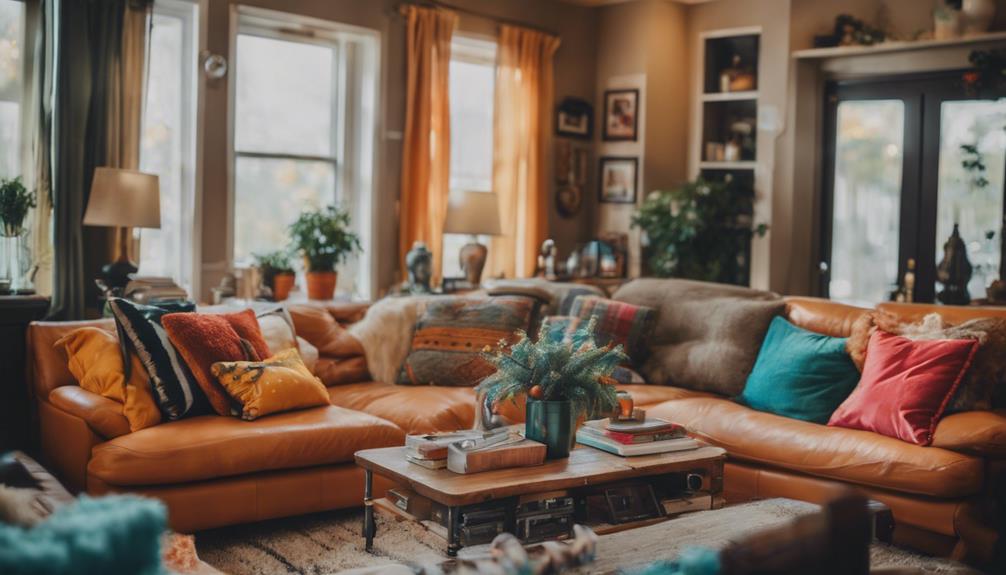
Your color choices impact the overall mood of a room, whether you opt for calming blues or energizing yellows.
The style of furniture you prefer, from minimalist to ornate, can reveal aspects of your personality, like your level of creativity or traditionalism.
Decorative items you choose to showcase, such as art pieces or family photographs, offer glimpses into your interests and values.
Color Choices Impact
Choosing colors for your home decor can offer a glimpse into your unique personality traits, reflecting aspects of your character through vibrant, subdued, or dramatic tones.
- Bright colors in your home decor indicate an extroverted personality and a lively spirit.
- Neutral color palettes suggest practicality, calmness, and a preference for simplicity.
- Dark colors in decor can reveal a dramatic and bold nature in your personality.
Your color choices impact the overall ambiance of your living space, shaping how you and others feel when they enter. Whether you opt for bright, neutral, or dark tones, your home decor can speak volumes about who you're and how you like to express yourself through your living environment.
Furniture Style Preference
When selecting furniture styles for your home decor, your personality shines through, revealing unique aspects of your character. Vintage pieces reflect a nostalgic personality, appreciating history and timeless pieces.
Modern furniture choices suggest a preference for sleek and contemporary design, showcasing a forward-thinking mindset. Rustic furniture indicates a down-to-earth and authentic personality, valuing simplicity and warmth.
Classic furniture lovers prioritize timeless pieces over trends, embodying a sense of dependability and enduring style. Each furniture style speaks volumes about your individuality and preferences.
Whether you lean towards vintage charm, modern sophistication, rustic simplicity, or classic elegance, your furniture choices create a distinct ambiance in your home that mirrors your personality.
Decorative Items Showcase
Reflecting your unique personality and style in home decor can be achieved through the thoughtful selection and display of decorative items. Incorporating personal artifacts in your space signifies a strong sense of self and individual identity.
A mix of vintage pieces and sustainable materials not only showcases a grounded nature but also reflects an eco-conscious mindset. Additionally, integrating greenery and natural fibers into your decor can create a sense of harmony and connection to the outdoors.
Your home should tell a story about who you're and what you value, making it a true reflection of your personality. Choose items that resonate with you, as they're the key to transforming a house into a home.
Unveiling Personal Traits Through Decor
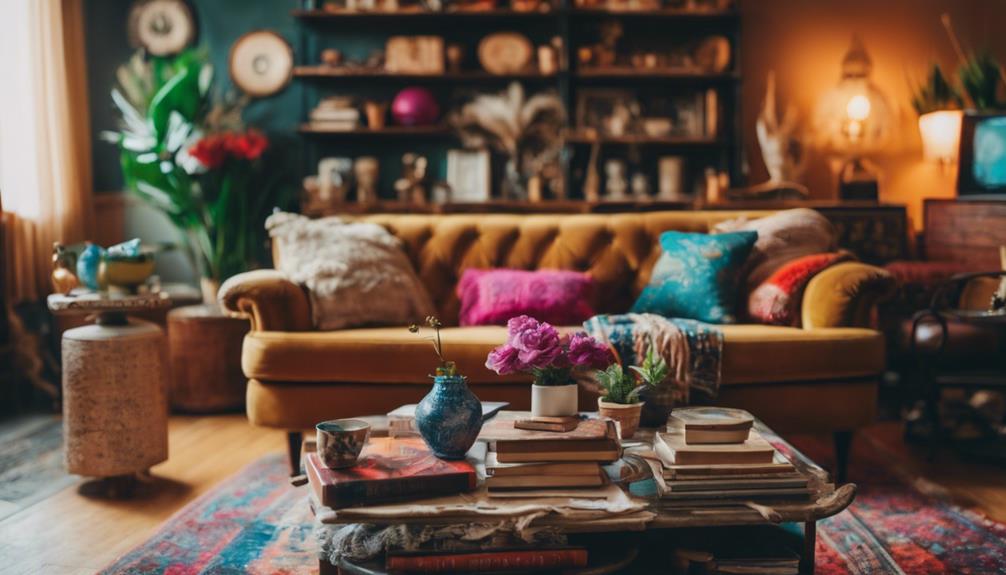
Reveal your personality through your home decor choices, showcasing traits like extroversion, practicality, and creativity. Your decor means more than just arranging pieces and sustainable materials; it speaks volumes about who you are. Style says a lot about your personality, whether you prefer open spaces or cozy nooks. Here's a breakdown of how different decor styles can reflect your unique traits:
| Decor Style | Personality Traits |
|---|---|
| Traditional | Practicality, Formality |
| Mid-Century Modern | Creativity, Elegance |
| Rustic Farmhouse | Warmth, Relaxed Nature |
| Contemporary | Innovation, Sophistication |
| Smooth | Flexibility, Balance |
Your choice of decor style can give insights into your character, from the sleek lines of contemporary design reflecting innovation to the cozy feel of rustic farmhouse indicating a relaxed nature. Next time you redecorate, consider how your style choices might be revealing more about you than you think.
Significance of Home Styling Choices
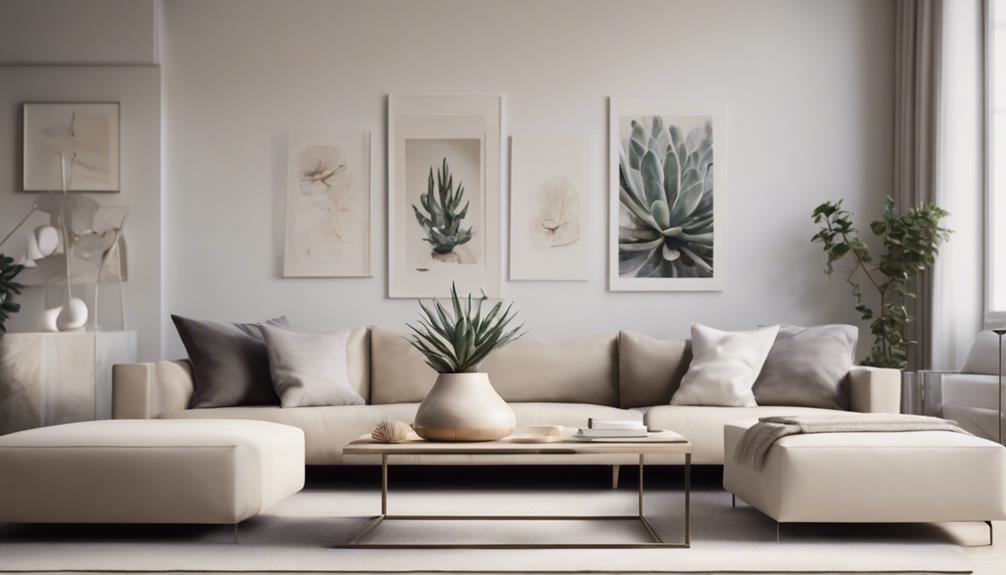
Exploring the impact of home styling choices on your personality traits sheds light on the significance of interior design in reflecting individual characteristics. When it comes to design decisions in your home, several factors can reveal more about your personality than you might realize:
- Color Choices: The hues you select for your walls, furniture, and decor can indicate your emotional tendencies and level of creativity.
- Organization of Spaces: How you arrange your rooms and handle clutter can reflect your level of organization and attention to detail.
- Decor and Accessories: The items you choose to display, whether minimalist or eclectic, can offer insights into your personal style and preferences.
Understanding how these aspects of home design play a role in reflecting your personality can help you create a space that truly feels like home while also showcasing your unique traits and characteristics.
Decoding Personality Through Decor
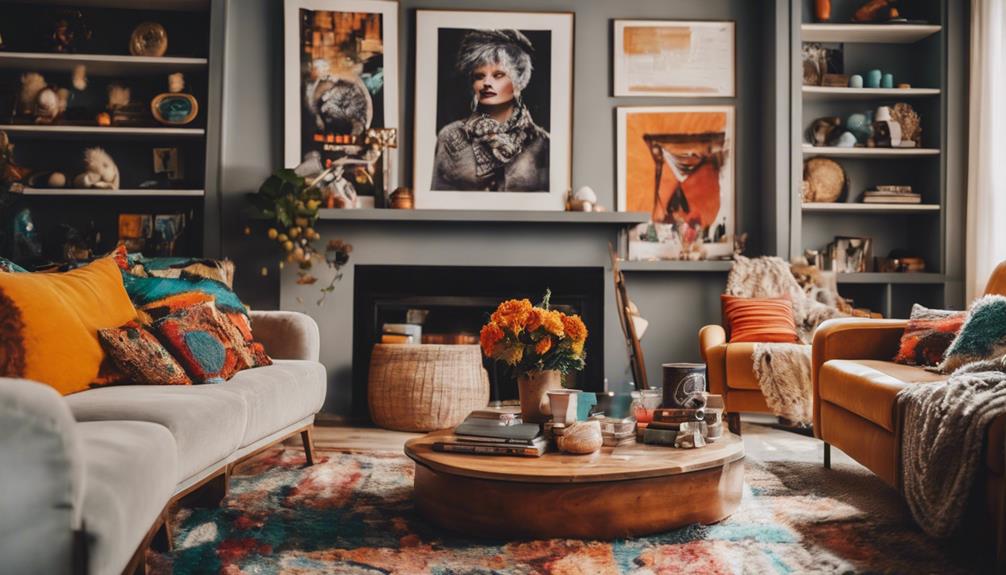
Deciphering your personality through your choice of decor items can offer valuable insights into your character traits and preferences. The pieces you make a part of your home say a lot about who you are. For example, having fine art displayed in your living space showcases a sense of business acumen and an appreciation for aesthetics. Personal artifacts on display indicate a strong sense of self and a connection to your personal history. Opting for a streamlined decor suggests qualities like focus, attention to detail, and reliability. If you have an extensive collection of candles adorning your space, it might signify ambition and drive. Additionally, incorporating greenery and natural fibers into your decor reveals a love for nature and a commitment to sustainability.
| Decor Choice | Personality Traits |
|---|---|
| Fine Art | Business acumen, aesthetic appreciation |
| Personal Artifacts | Strong sense of self, personal history |
| Streamlined Decor | Focus, attention to detail, reliability |
| Candles Collection | Ambition, drive |
| Greenery and Natural Fibers | Love for nature, sustainability |
Understanding Self Through Home Design
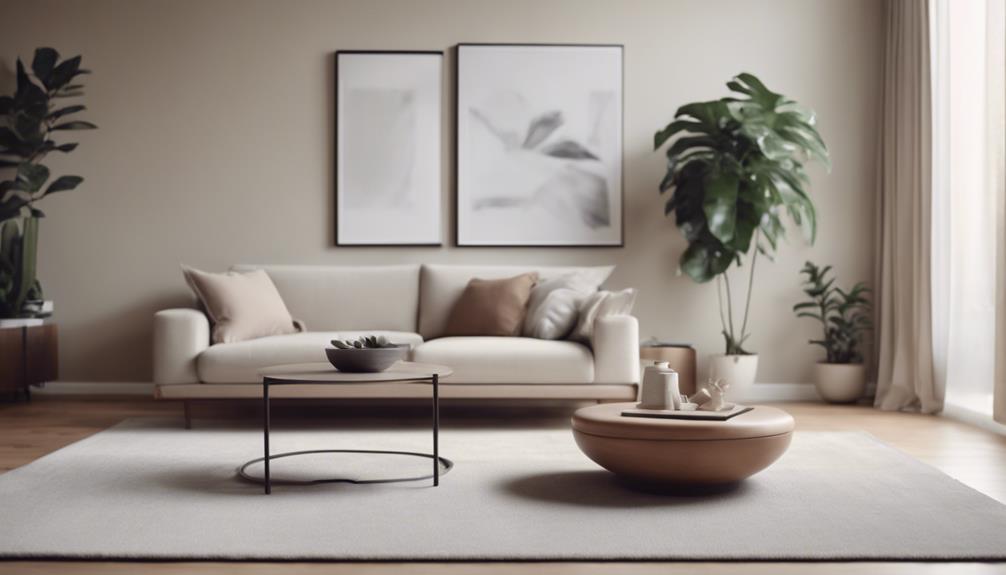
As you consider the design elements in your home, you can uncover deeper insights into your own personality traits and values. Your room arrangement and decor choices can reveal more about you than you might realize.
Here are some ways in which Home Decor Reveals aspects of your personality:
- The color palette you choose shows your emotional tendencies and mood preferences.
- The furniture styles you prefer indicate your level of traditionalism or modernity.
- The art you display can reflect your interests, passions, or even your profession; for example, a collection of business-themed art indicates you're business-oriented.
Personal Expression via Home Decor
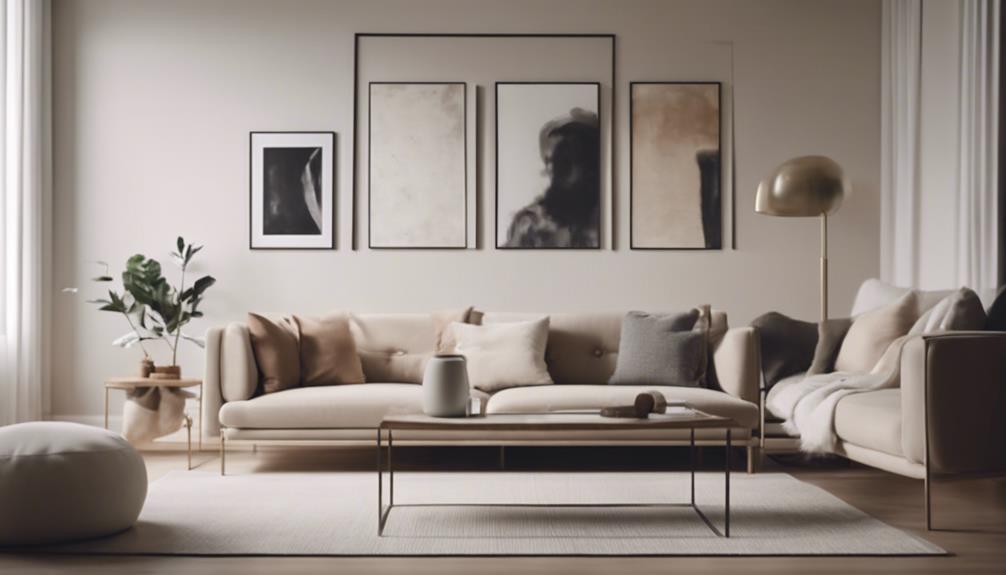
How does your home decor reflect your unique personal expression?
Personal artifacts play a key role in showcasing a strong sense of self and individuality. By incorporating vintage pieces and sustainable items into your decor, you can demonstrate a grounded personality that values tradition and environmental consciousness.
The presence of brightly colored doors in your living space can symbolize an outgoing and vibrant personality, adding a pop of energy to the overall ambiance.
When you mix personal artifacts with traditional decor pieces, you weave a narrative that tells a story about who you are and what you value.
Conversely, a lack of personalization in your decor may result in a space that lacks personality and fails to express your true self.
Hence, infusing your home with elements that reflect your individuality and values is essential for creating a space that truly feels like your own.
Home Decor as a Mirror of Self
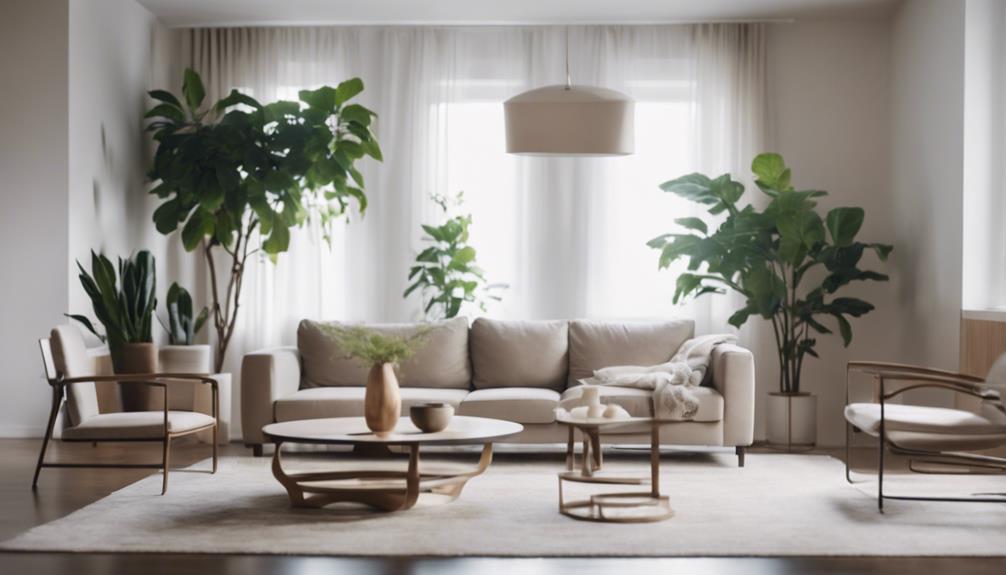
Your home decor acts as a direct reflection of your personality traits, values, and preferences. The design choices you make in your home can reveal insights into your character and lifestyle. Home decor serves as a mirror of self, showcasing your style, tastes, and personal identity.
- The living room is often the heart of a home, and how you choose to decorate this space can speak volumes about your social nature and hospitality.
- The sofa shows the choices you make regarding comfort, style, and functionality can indicate your priorities and lifestyle habits.
- Design enthusiasts often pay attention to details like decorative pillows, using them to add flair and personality to a room while showcasing their creativity and attention to aesthetics.
Frequently Asked Questions
Does Your House Reflect Your Personality?
Your house reflects your personality in numerous ways. From the colors you choose to the furniture arrangements, each decision can reveal aspects of who you are.
Your home decor can offer insights into your tastes, preferences, and even your level of organization. By paying attention to the details in your living space, you might discover how your personality is subtly manifested in the environment you have created.
Why Do Some People Not Decorate Their Homes?
When some individuals avoid decorating their homes, it can stem from various reasons such as fear of commitment, indecisiveness, or a reluctance to commit to a specific style.
This can lead to minimal decor or even empty spaces. For some, the fear of making design mistakes or a lack of comfort with permanence can also play a role.
These factors combined may result in homes that lack personal touches or decorative elements.
Why Do People Do Home Decor?
You decorate your home to create a space that reflects your personality, style, and values. It allows you to showcase your creativity and design skills while making your living environment comfortable and welcoming.
How to Design Your Home According to Your Personality?
To design your home according to your personality, start by reflecting on your traits and preferences. Consider if you lean towards introversion, socializing, or practicality.
Incorporate personal items and favorite colors into your decor. Choose furniture styles, colors, and layouts that resonate with you.
Conclusion
Your home decor choices can reveal a lot about your personality and inner self. From colors to furniture styles, every detail reflects a part of who you are.
By understanding the connection between home styling and personal traits, you can gain insight into your own identity and express yourself authentically through your living space.
Remember, your home decor isn't just about aesthetics, but also a reflection of your unique individuality.
Lighting
How Do LED Lights Make Plants Grow Faster?
Fuel plant growth with LED lights emitting essential wavelengths for photosynthesis, enhancing speed and quality – discover how LEDs revolutionize plant development!
LED lights promote plant growth by emitting red and blue wavelengths that are crucial for photosynthesis. NASA research supports the use of LED lights to improve growth rates and the quality of plants. These lights provide a wide spectrum, which helps in different growth stages. Adjusting the colors of light based on the growth phases enhances plant functions. LED technology effectively encourages plant growth by triggering hormones. Tailoring the light spectrum and duration optimizes growth. Utilize the benefits of LED technology to achieve quicker plant growth. Keep discovering how LED lights can be customized for various growth stages to maximize efficiency and speed up plant development.
Key Takeaways
- LED lights provide specific red and blue wavelengths for accelerated photosynthesis.
- Customizable light spectrum optimizes growth rates and plant functions.
- Efficient LED technology stimulates plant hormones for rapid growth.
- NASA studies confirm LED lights promote fast and robust plant development.
- Longer lifespan and energy efficiency make LED lights a cost-effective choice for growers.
Benefits of LED Grow Lights for Plants
LED grow lights revolutionize plant growth by providing specific red and blue light wavelengths essential for faster development and increased growth rates. These energy-efficient lights offer numerous benefits for plants, such as accelerated growth and improved plant quality.
The precise color adjustment in LED lighting plays a vital role in enhancing plant growth at various stages, promoting faster growth rates from seedling to maturity. NASA studies have shown that plants thrive better under LED grow lights compared to traditional light sources, growing taller and quicker. Additionally, LED lights have a longer lifespan, making them a cost-effective choice for growers.
With a wider range of colors and wattages available, LED grow lights support plants throughout their growth cycle, ensuring ideal conditions for accelerated growth and development. Overall, the use of LED grow lights is a game-changer in the world of plant cultivation, offering a more efficient and effective way to nurture healthy and thriving plants.
Light Spectrum's Impact on Plant Growth
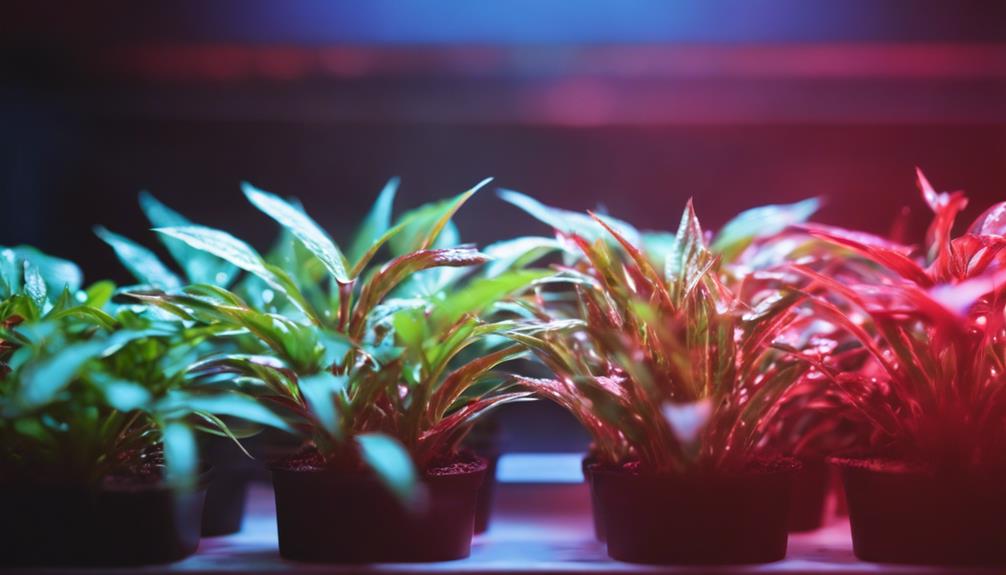
LED lights emit different light wavelengths that impact plant growth in distinct ways. Red light encourages flowering and fruiting, while blue light enhances leaf development and overall growth.
Light Spectrum Basics
The spectrum of light plays a pivotal role in influencing plant growth by impacting various physiological processes. Red light from LED lights promotes flowering and fruiting, while blue light triggers phototropism and chloroplast movement, aiding in nutrient absorption. LED lights provide a balanced spectrum mimicking sunlight, enhancing growth. These lights stimulate photosynthesis and chlorophyll production, vital for plant development. The specific wavelengths emitted influence seed germination, vegetative growth, and reproductive stages, leading to faster plant growth.
| Light Type | Impact on Plant Growth |
|---|---|
| Red Light | Promotes flowering and fruiting |
| Blue Light | Triggers phototropism and chloroplast movement |
| LED Lights | Provide a balanced spectrum for enhanced growth |
| Photosynthesis | Stimulated by specific light wavelengths |
Photosynthesis Process
The impact of light spectrum on plant growth is significant, particularly in influencing the photosynthesis process. LED lights, with their specific light wavelengths, play a pivotal role in enhancing plant growth by promoting chlorophyll production and nutrient absorption.
Red and blue light wavelengths in the LED spectrum stimulate photosynthesis, leading to faster plant growth and development. By mimicking natural sunlight, LED lights provide an ideal spectrum for plants, accelerating their growth rate.
The precise light spectrum emitted by LED grow lights optimizes the photosynthesis process, resulting in faster and healthier plant growth. This stimulation of photosynthesis through targeted light wavelengths ensures that plants receive the necessary energy for robust growth and development.
Maximizing Plant Growth With LED Lights
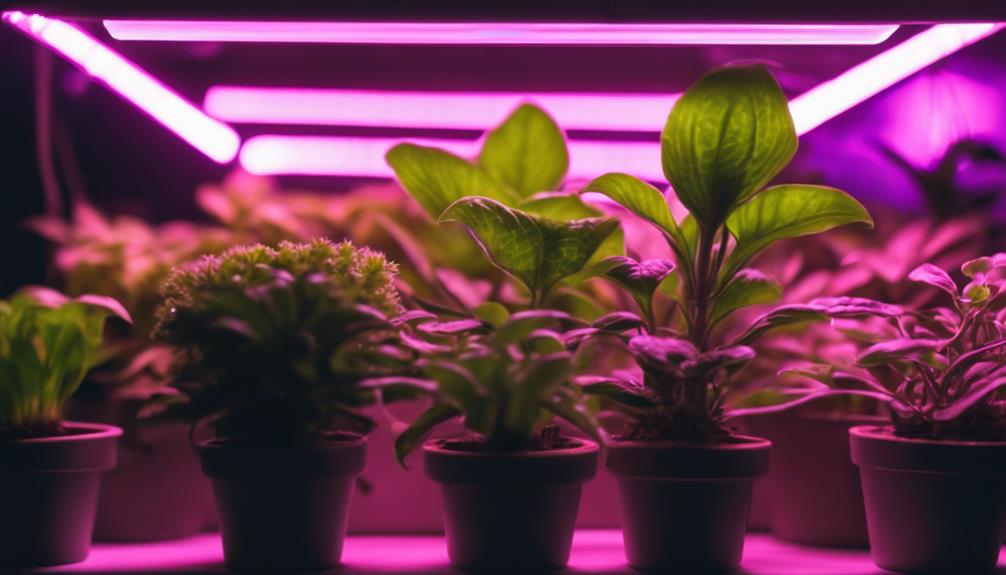
LED lights play an essential role in maximizing plant growth by providing specific light wavelengths that stimulate photosynthesis and flowering. By adjusting the light spectrum and duration, growers can optimize growth rates and enhance overall plant development.
NASA studies confirm that utilizing LED lights not only accelerates plant growth but also reduces operational costs for growers.
Light Spectrum Impact
Enhancing plant growth with LED lights involves optimizing the light spectrum to maximize photosynthesis efficiency and accelerate overall plant development. LED lights offer specific wavelengths such as red and blue light, which play pivotal roles in enhancing plant growth. Red light stimulates flowering and fruit production, leading to faster growth and increased yields. On the other hand, blue light is essential for the vegetative stage, promoting plant growth and development. By customizing the spectrum of LED lights, growers can meet the unique light requirements of different plant species, resulting in accelerated growth rates. This customization mimics natural sunlight, maximizing photosynthesis efficiency in plants and ultimately boosting their overall health and growth.
| Light Type | Role in Plant Growth | Effects |
|---|---|---|
| Red Light | Stimulates flowering and fruit production | Faster growth, higher yields |
| Blue Light | Enhances vegetative stage growth | Faster development, increased growth rates |
| LED Lights | Customizable spectrum to meet plant needs | Accelerated growth, optimized photosynthesis |
Optimal Light Duration
Maximizing plant growth with LED lights involves fine-tuning the duration of light exposure to optimize photosynthesis efficiency and promote accelerated development. The ideal light duration typically ranges from 12 to 18 hours per day, varying based on the plant species and growth stage. Longer light exposure can lead to faster growth, but finding the right balance is essential to prevent stress or damage to the plants.
Consistent light cycles play a significant role in regulating plant metabolism and enhancing photosynthesis efficiency. By adjusting the light duration according to the plant response and growth stage, it's possible to stimulate healthier and quicker growth under LED lights.
Ensuring a proper balance between light and darkness allows plants to have sufficient rest periods, ultimately maximizing growth acceleration with LED lighting.
Customizing LED Lighting for Plants
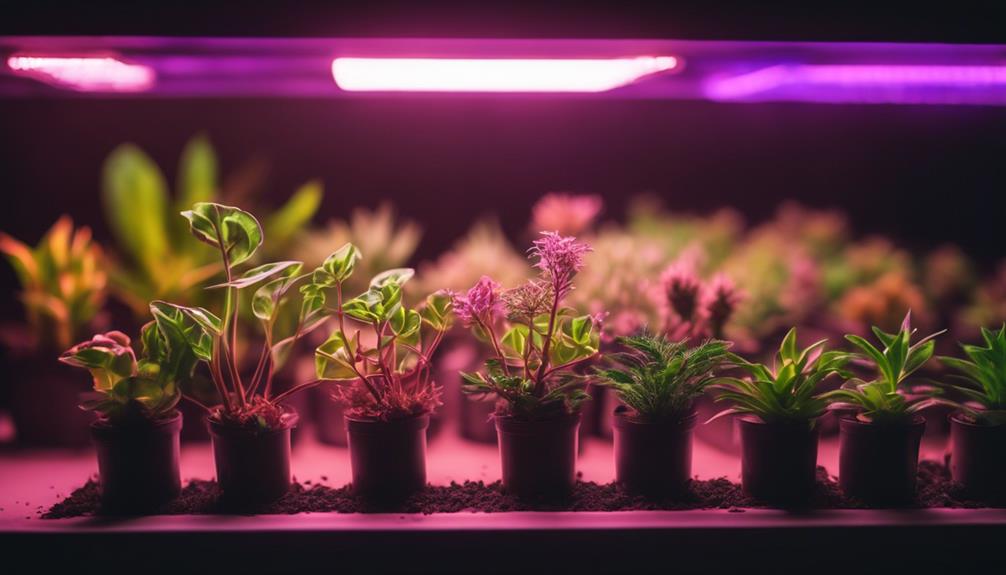
Customizing the lighting spectrum of LEDs for plants involves adjusting the colors to correspond with specific growth stages, optimizing conditions for plant development. By tailoring the light spectrum, growers can enhance plant functions at different phases.
For instance, using blue light during vegetative growth and red light during flowering can boost productivity. Additionally, violet light can assist in seed germination, while yellow light supports overall growth. These adjustments also play an essential role in chlorophyll production, increasing photosynthesis efficiency.
Customized LED lighting systems offer flexibility, allowing growers to control light intensity, duration, and spectrum. This customization enables precise light exposure based on the unique requirements of plants at varying growth stages, from seedling to maturity.
Ultimately, optimizing LED lighting for plants enhances growth potential and accelerates growth rates by providing the ideal conditions for each developmental phase.
Accelerating Plant Growth Using LED Technology
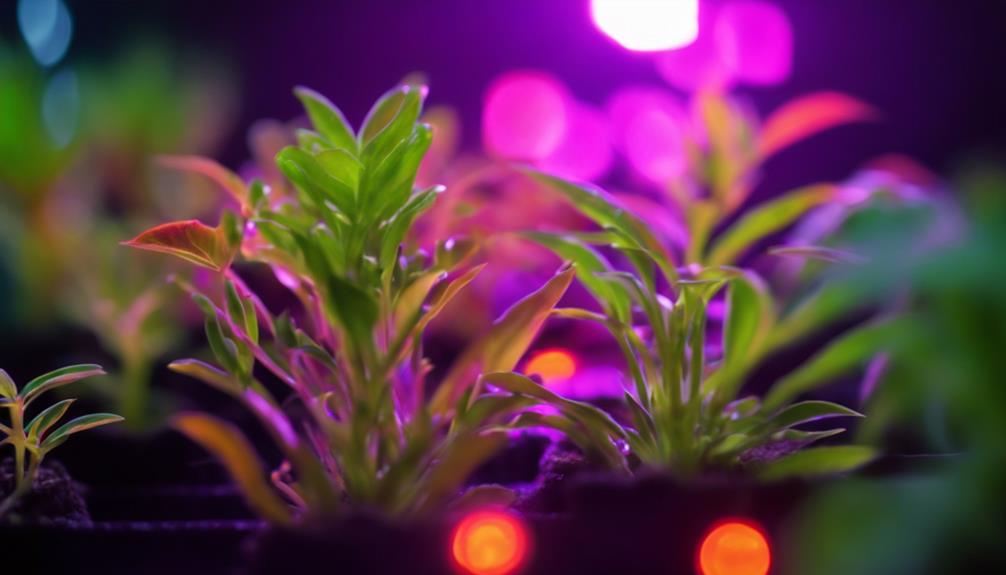
LED technology revolutionizes plant growth by harnessing specific red and blue wavelengths to accelerate photosynthesis and promote faster development in plants. The significant spectrum of light emitted by LED Grow Lights plays an essential role in stimulating plant hormones responsible for growth, leading to quicker and more robust development.
One key advantage of LED technology is the ability to customize light wavelengths, ensuring that plants receive the exact spectrum needed for rapid growth. Studies have demonstrated that plants grown under LED lights exhibit increased growth rates compared to those under traditional lighting sources. This accelerated plant growth is attributed to the consistent and efficient light energy provided by LEDs, which plants readily absorb to fuel their development.
Efficiency of LED Lights in Plant Growth
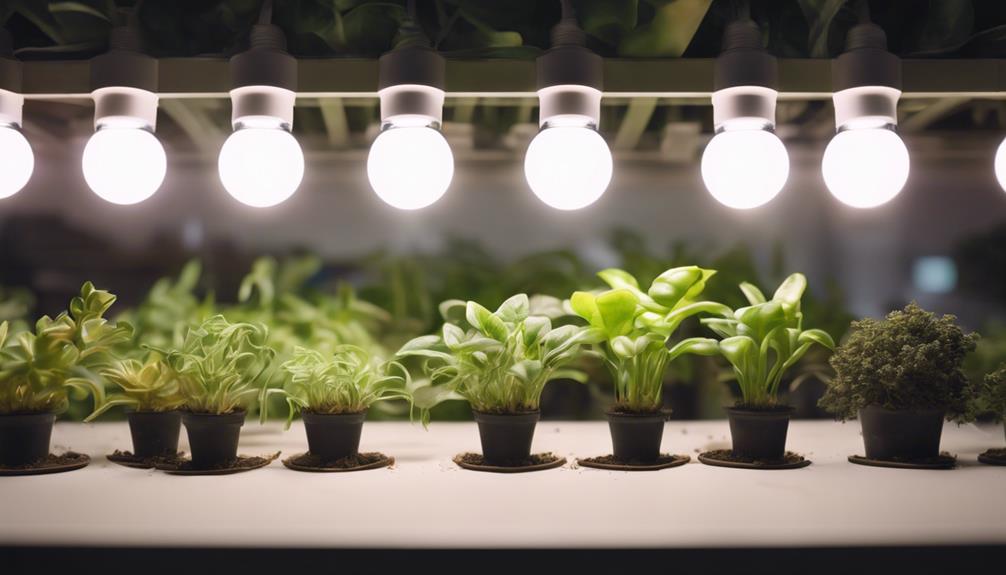
The effectiveness of LED lights in promoting plant growth efficiency is evident through various studies and research findings. LED grow lights provide the specific red and blue light wavelengths essential for photosynthesis, leading to faster and healthier plant growth. Studies have shown that plants grown under LED lights tend to be taller and grow quicker compared to those under traditional lighting sources.
Additionally, LED lights are energy-efficient, cost-effective, and have a longer lifespan, contributing to their ability to enhance plant growth. These lights mimic natural sunlight accurately, providing plants with the ideal conditions for growth and development. NASA research further supports the benefits of using LED lights for plant growth, highlighting their efficiency in promoting fast and robust plant growth.
Setting up Optimal LED Environment for Plants
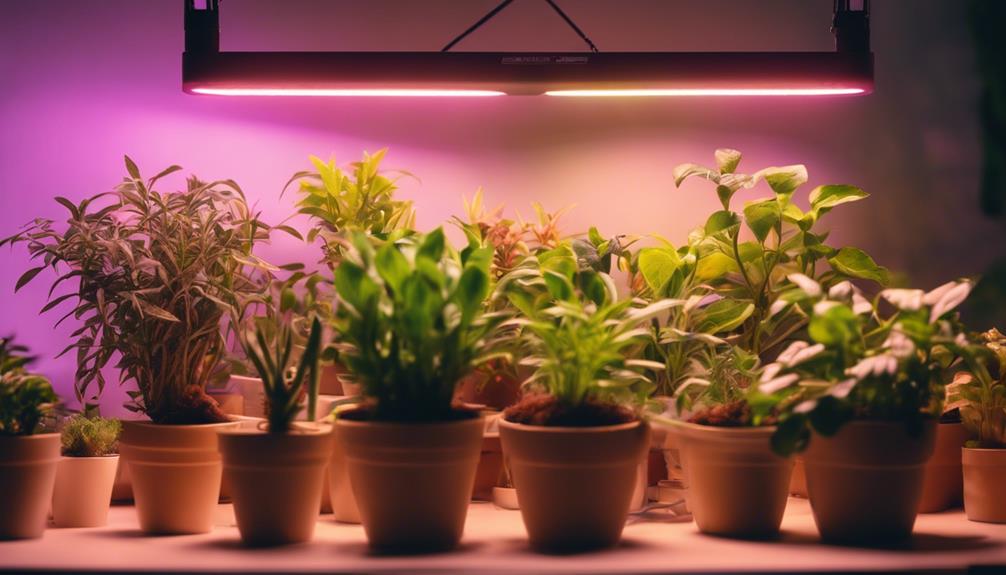
Creating an ideal environment for plants under LED lights involves precise adjustments and strategic planning. Maintaining the proper distance between LED lights and plants is essential to prevent damage and promote ideal growth conditions. Adjusting the height of LED lights as plants grow helps provide consistent and adequate light coverage for all growth stages.
Utilizing reflectors can maximize light distribution and coverage, enhancing the efficiency of LED lighting for plant growth. Implementing timers to regulate light exposure and maintain consistent light cycles is vital for supporting plant development under LED lights. Monitoring plant growth closely and adjusting light intensity accordingly can help optimize the use of LED lights for faster plant growth.
Frequently Asked Questions
Do Plants Grow Faster With LED Lights?
Plants indeed grow faster under LED lights. The specific red and blue light wavelengths emitted by LEDs mimic natural sunlight, stimulating rapid growth and photosynthesis. LED technology offers energy-efficient solutions for promoting plant development compared to traditional lighting.
Studies have demonstrated that plants grow taller and quicker under LED lights. By customizing the light intensity and spectrum, LED lights enhance plant growth speed and efficiency across different growth stages.
Can I Use Regular LED Lights to Grow Plants?
Regular LED lights can provide some light for plants, but LED grow lights are more effective due to their specific red and blue light wavelengths essential for plant growth.
LED grow lights offer a broader range of colors and wattages, ensuring ideal conditions for plant growth.
While regular LED lights can assist with plant growth, scientists and plant biologists recommend LED grow lights for faster and healthier plant development.
What Color LED Light Helps Plants Grow?
LED lights with a balanced spectrum of red and blue wavelengths optimize photosynthesis and boost plant growth rates. This combination acts like a well-tuned orchestra, harmonizing to provide plants with the perfect light recipe for thriving.
Red light stimulates flowering and fruit production, while blue light aids in vegetative growth and overall plant health.
When used in the right ratios, red and blue LED lights work together to enhance plant growth and development effectively.
Can Plants Photosynthesize With LED Light?
Plants can effectively photosynthesize with LED light, utilizing specific wavelengths essential for growth and development. LED lights mimic natural sunlight, supporting photosynthesis in plants by providing the necessary light spectrum for converting light energy into chemical energy.
Conclusion
To sum up, LED lights act as a catalyst for plant growth, providing a boost in efficiency and customization.
Like a symphony conductor directing each instrument, LED technology orchestrates the perfect lighting environment for plants to thrive.
By harnessing the power of light spectrum and maximizing growth potential, plants under LED lights flourish like a well-tended garden, reaching their full potential at an accelerated pace.
-

 Vetted7 months ago
Vetted7 months ago15 Best EMS Foot Massagers for Neuropathy to Soothe Your Feet
-
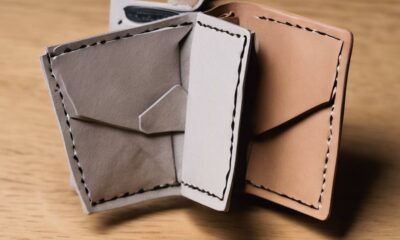
 Vetted6 months ago
Vetted6 months ago14 Best Personalized Father's Day Gifts for Your Husband – Show Him You Care
-
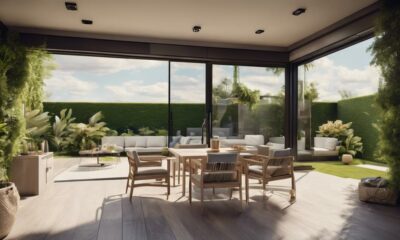
 Alfresco6 months ago
Alfresco6 months agoAlfresco Stacker Doors: Seamless Indoor-Outdoor Living!
-
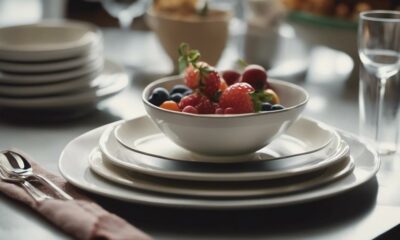
 Tableware and Dining Accessories44 minutes ago
Tableware and Dining Accessories44 minutes agoWhat Is the Meaning of the Word Tableware
-
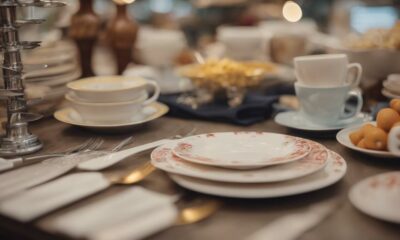
 Tableware and Dining Accessories44 minutes ago
Tableware and Dining Accessories44 minutes agoWhen Is Tableware on Sale at Hobby Lobby
-
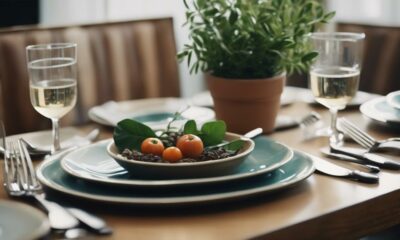
 Tableware and Dining Accessories8 months ago
Tableware and Dining Accessories8 months agoWhich of the Following Is Not Classified as Tableware
-

 Craft and Textiles8 months ago
Craft and Textiles8 months ago15 Best Places to Buy Appliances for Your Home – Top Retailers Reviewed
-
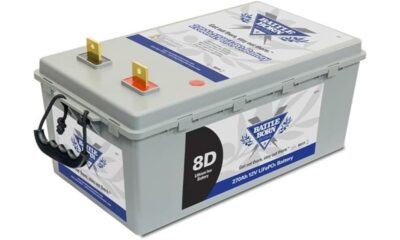
 Vetted6 months ago
Vetted6 months agoBattle Born Batteries Review: Reliable Power Solution





